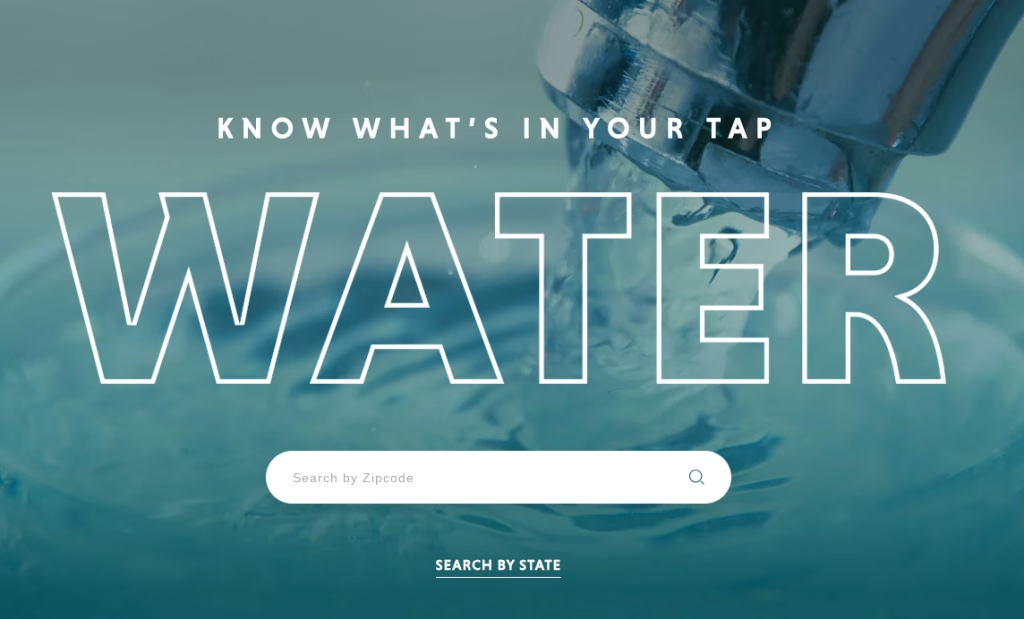What Homeowners Need to Know
Water Quality in West Bend, Wisconsin
Water Quality in West Bend, Wisconsin – City and Private Well Overview
West Bend residents rely on two main types of water: city-supplied municipal water and private groundwater wells. While the municipal system is regulated and tested regularly, private wells are not monitored by the city, making treatment and testing a personal responsibility.
The West Bend Waterworks utility serves over 31,500 people and pulls from nine high-capacity wells tapping into the Ordovician Maquoketa Shale aquifer. The water is disinfected with chlorine and maintained within legal compliance. Still, many residents experience issues like hardness, chlorine taste, and trace contaminants that can build up in the body over time.
For homes on private wells, concerns often include rust staining, sulfur odors, extreme water hardness, and nitrate pollution from agricultural runoff. Some well users also report low pH, which can be corrosive to plumbing.
Both water sources have challenges that homeowners can solve with the right filtration, softening, and reverse osmosis systems. The key is identifying your specific water quality and selecting equipment that targets the exact issues in your home.
Contaminants of Concern in West Bend’s Water
What’s in West Bend’s City Water? (EWG Report Summary)
According to the Environmental Working Group (EWG), the West Bend Waterworks system (PWS ID: WI2670120) has 32 total contaminants detected, with 14 contaminants exceeding EWG’s stricter health-based guidelines.
While the water meets all federal legal standards, many contaminants are present at levels that research shows may pose health risks, especially with long-term exposure. These include chemicals linked to cancer, developmental issues, and hormonal disruption.
Top 10 Detected Contaminants in West Bend, WI
| Contaminant |
Detected Level |
| Total trihalomethanes (TTHMs) |
20.6 ppb |
| Haloacetic acids (HAA9) |
4.95 ppb |
| Chloroform |
1.82 ppb |
| Bromodichloromethane |
1.71 ppb |
| Dibromochloromethane |
1.44 ppb |
| Trichloroacetic acid |
1.31 ppb |
| Dichloroacetic acid |
1.25 ppb |
| Dibromoacetic acid |
0.603 ppb |
| Chromium (hexavalent) |
0.0957 ppb |
| Nitrate |
0.918 ppm |
Data reflects utility testing from 2021 to 2023, sourced from the Wisconsin Department of Natural Resources and U.S. EPA databases, and reported by the EWG.
View Full Report on EWG.org
Important note: The EWG health guidelines are far more stringent than federal legal limits. For example, while the EPA allows TTHMs up to 80 ppb, EWG recommends no more than 0.15 ppb due to cancer risk. West Bend’s detected level of 20.6 ppb exceeds that benchmark by more than 130 times.
Solutions to Common Issues
Choosing the Right Water Treatment for Your Home
Not all water is the same and neither are the solutions. Whether your water comes from a city supply or a private well, it can carry different minerals, chemicals, or contaminants that affect your home and health.
That’s why it’s important to look at all four key options:
- Water softeners for hard water problems
- Whole house filters for chlorine, odors, and sediment
- Reverse osmosis systems for safe, great-tasting drinking water
- Iron filters for rust stains and rotten egg smells
Your water source and the issues it brings will help determine which system (or combination) is right for you.
Water Softener
Hard water has minerals like calcium and magnesium that cause issues around your home. A water softener removes them for cleaner, better-feeling water.
Hard water can:
- Leave spots on dishes
- Make soap and shampoo less effective
- Cause buildup on faucets and showerheads
- Shorten the life of appliances
- Dry out your skin and hair
A water softener:
- Removes hard minerals
- Helps soap work better
- Protects appliances
- Makes water feel soft on skin
If you see signs of hard water, a softener is a smart fix.
Drinking Water System
Even if your tap water looks clean, it can still contain dissolved solids, chemicals, or contaminants you don’t want to drink. Reverse osmosis gives you highly purified water, right at the tap.
Unfiltered drinking water can have:
- Chlorine, lead, or other chemicals
- Nitrates, fluoride, or heavy metals
- Cloudiness or bad taste
- Pollutants from old pipes or plumbing
A reverse osmosis system:
- Removes up to 99% of contaminants
- Improves taste, clarity, and odor
- Gives you bottled-quality water at home
- Fits neatly under the kitchen sink
If you want cleaner, safer, better-tasting drinking water, RO is the gold standard.
Iron Filter
If your water leaves orange stains or smells like metal or rotten eggs, iron could be the problem. An iron filter removes it before it damages your home.
Iron in water can:
- Leave orange or brown stains in sinks, tubs, and toilets
- Make water smell metallic or like rotten eggs (if sulfur is present)
- Clog plumbing and damage appliances
- Affect the taste of your water and food
- Turn laundry yellow or dingy
An iron filter:
- Removes iron, manganese, and sulfur odors
- Protects pipes, water heaters, and fixtures
- Stops staining and metallic smells
- Keeps water clear and fresh
If your water looks rusty or smells off, an iron filter can make a big difference.
Whole House Water Filter
Tap water can carry things you don’t want—like chlorine, sediment, rust, or even odd tastes and smells. A whole house filter cleans the water before it reaches any faucet.
Unfiltered water can:
- Smell or taste bad
- Leave stains in sinks, tubs, and toilets
- Carry chlorine or other chemicals
- Irritate skin or worsen allergies
- Let sediment build up in pipes and appliances
A whole house filter:
- Removes chlorine, rust, dirt, and odors
- Improves water taste and smell
- Protects pipes, fixtures, and appliances
- Provides clean water from every tap
previous slide
next slide
Expert Advice, Exacting Science.
Get a Free Water Test in West Bend
Wondering what’s in your water? Schedule a free in-home water test and get professional insight into your home’s water quality. Our local team will test your water and recommend the right solution based on your results.
No pressure. Just clear answers and better water.
Call (262) 549-7733 or use our easy online scheduler now!
Why West Bend Families Work with Water Doctors
Families in West Bend choose Water Doctors because we offer:
Free water testing to help you understand your water quality, whether you’re on city or well water
Local expertise in Washington County’s unique aquifers and water chemistry
High-performance Kinetico systems that are non-electric, efficient, and proven
Customized solutions designed for your home, not one-size-fits-all systems
Continued service and support from a team that lives and works in your community
We believe water should be clean, healthy, and easy to enjoy. That’s why we’re proud to help West Bend families treat their water right, every day.
Water Doctors is known for our expert water testing, professional installation, and long-term service support. We are proud to serve thousands of Wisconsin families who value water quality and peace of mind. When Jackson residents choose Water Doctors, they know they are partnering with a local team that puts quality, reliability, and customer care first.

